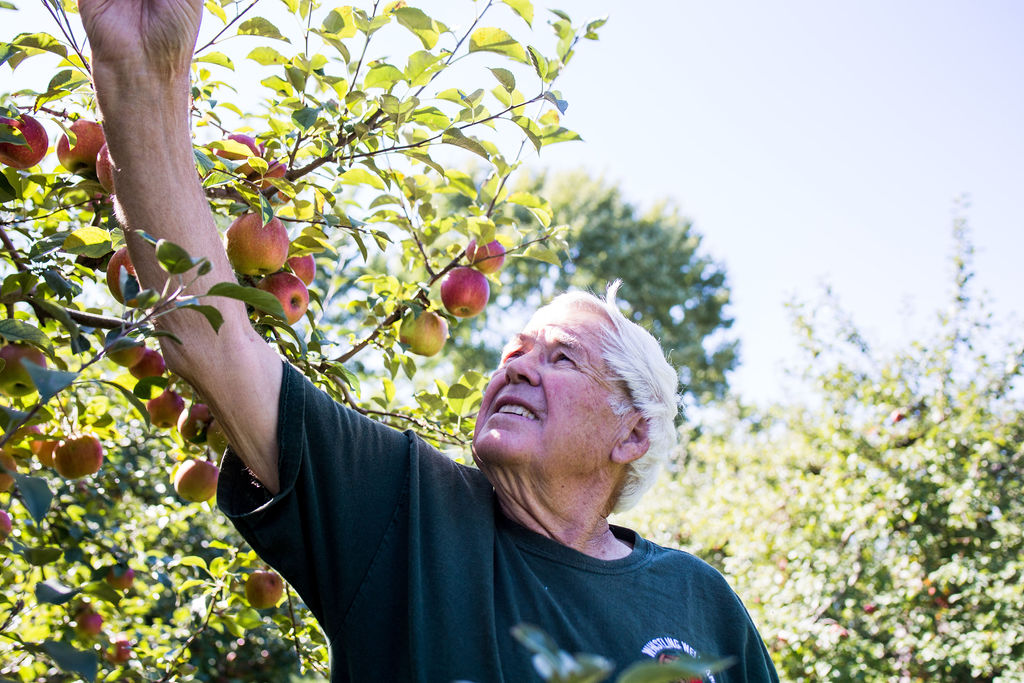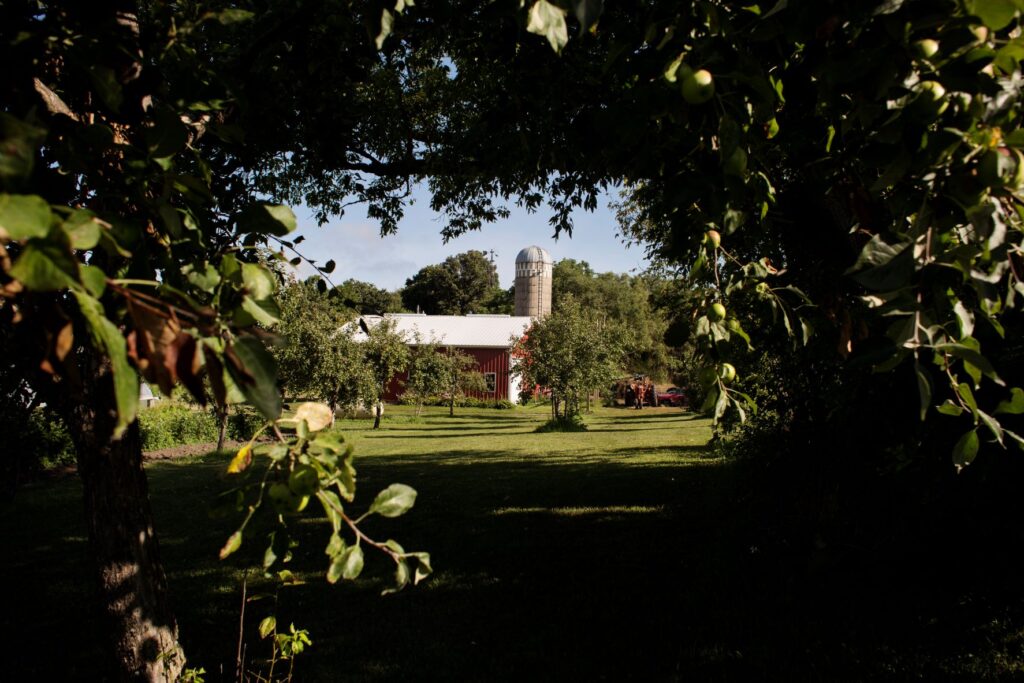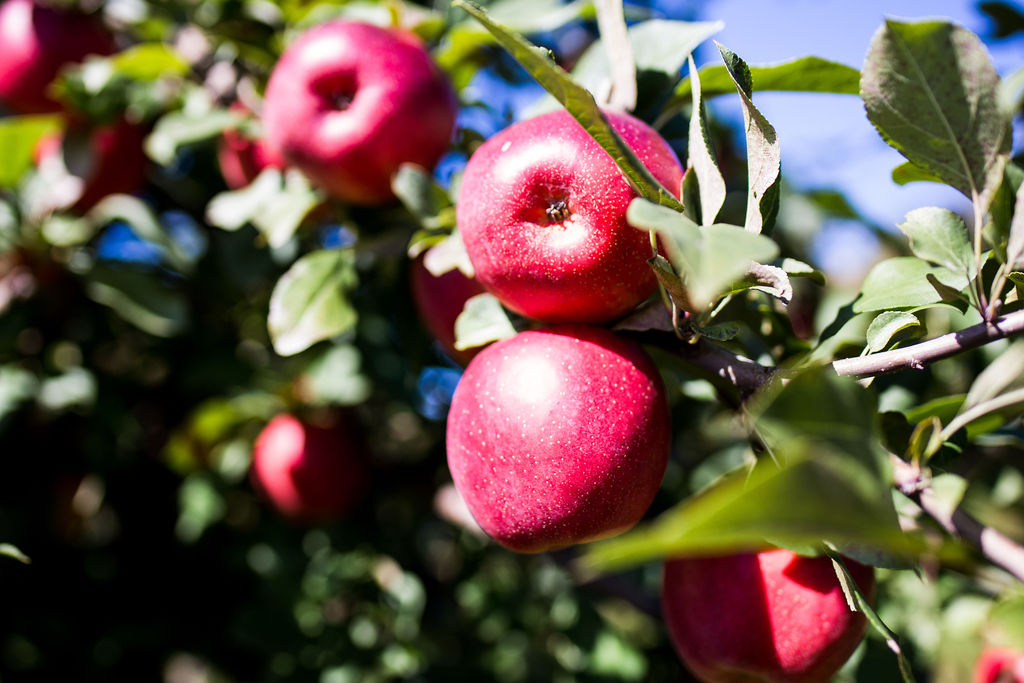The Core of Local Apples
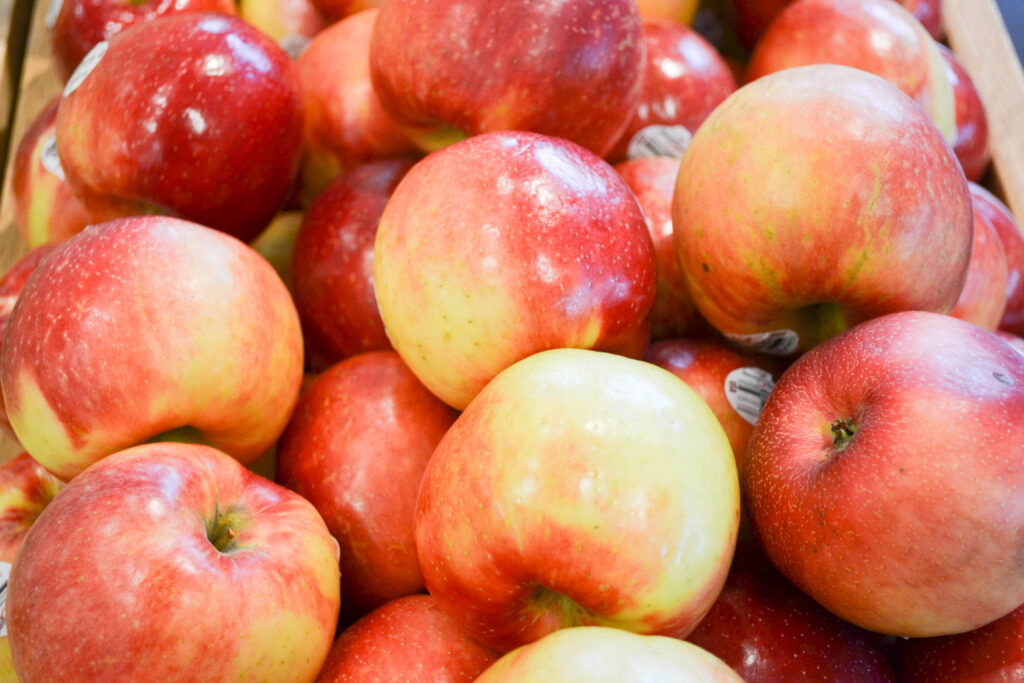
Apple season in Minnesota is the epitome of local flavor. Across the state and throughout the produce department, local apples abound. But what’s the story behind the crisp, juicy fruits we love so much? Local apple growers give us the in-cider scoop!
WHISTLING WELL FARM
Hastings, MN
Located in the rolling hills of Washington County, MN, Whistling Well Farm was founded in 1972 by husband and wife partners, Charlie and Carol Johnson. We caught up with farm owner Charlie Johnson to find out more about the apple orchards and other farm happenings. He was glad to share some farm stories from his decades of experience and tell us what it’s like to be a Minnesota apple grower.
Whistling Well Farm got its name from the whistling sound made by the farm’s well when east winds traveled through rock fissures on the shores of the nearby St. Croix River. The original farm consisted of cattle and row crops, but in the late ’70s the Johnsons, along with their sons Chad and Neal, began transitioning to produce and apple trees. “Today, we have 15,000 apple trees on multiple farm sites. The most popular varieties are ones developed by the University of Minnesota — First Kiss, SweeTango, and Honeycrisp,” says Johnson.
Growing apples in our region comes with its own set of challenges, from unexpected dry spells to cold snaps to the potential for crop diseases, and then there are the pests. “Our apples are grown using integrated pest management (IPM)*, a process of using minimum inputs to grow a quality crop. We’re proud to say the farm was awarded Outstanding Conservationist for Washington County in 2013, and gained Minnesota Agricultural Water Quality Certification in 2020. Being only a mile from the St. Croix River, soil and water conservation are extremely important to us,” Johnson says.
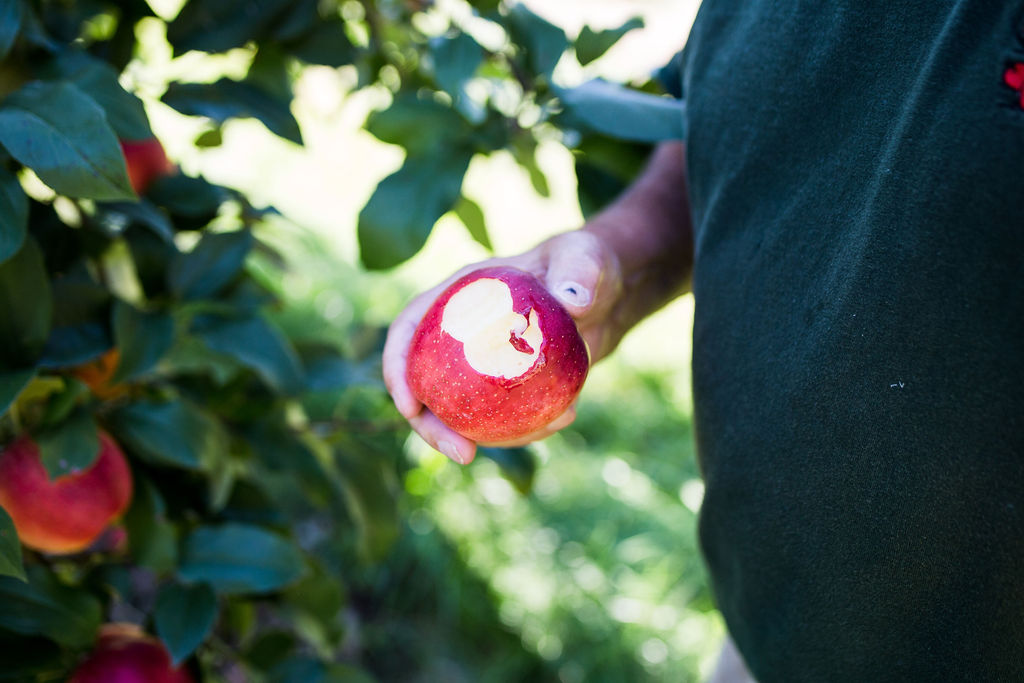
Visitors are welcome at the farm during apple season. “We are a family-friendly orchard. The goal is for families to enjoy the farm at their own pace, hopefully say hi to us and bring apples, pumpkins and other items home with them. We do not charge a gate admission so the day is not expensive.” Many varieties are grown at Whistling Well, but farmer Charlie has a personal favorite. “I love SweeTango, because of its great qualities and long storage life. For us it is primarily an eating apple, but we enjoy when friends make desserts and share with us!”
Charlie Johnson isn’t just a farmer, he’s also a children’s book author! “Emmy the springer spaniel is such a visible and fun part of the farm that we wanted to write a book about her, her adventures, and all of the little jobs she does. School children often read the book before they come to the farm and are amazed at how the book captures the farm buildings and landscapes.”
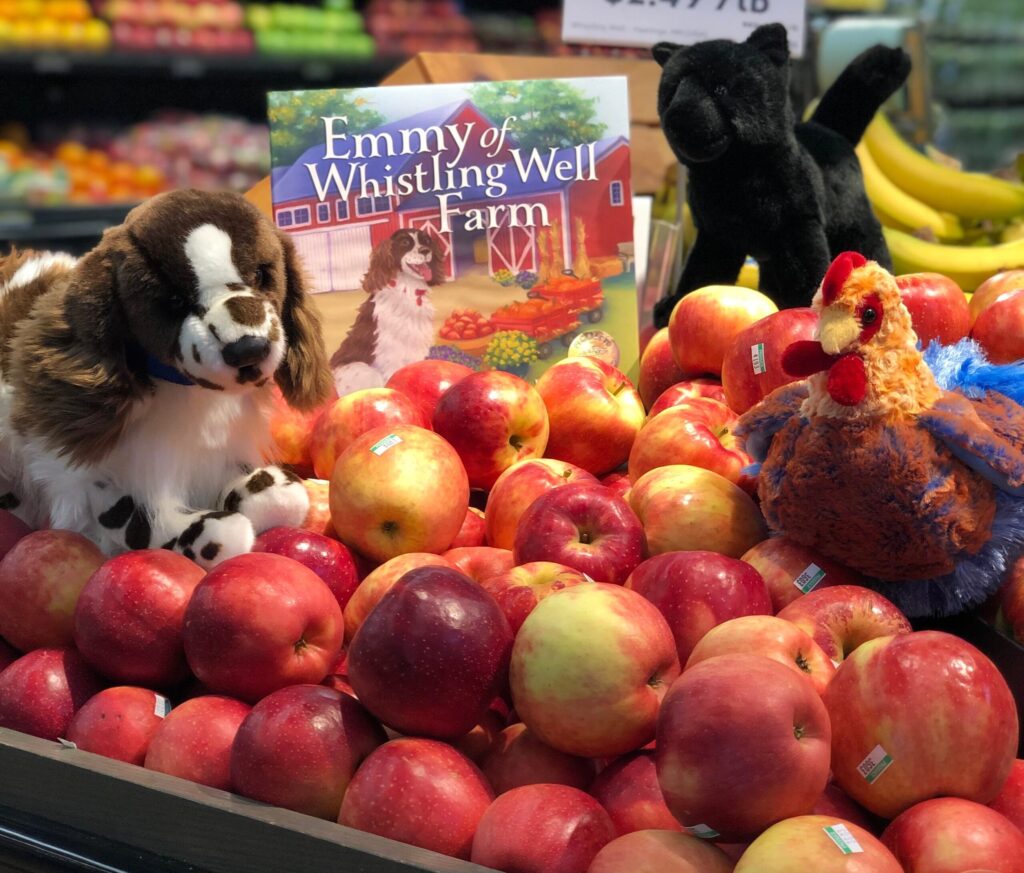
You can find Honeycrisp, SweeTango, McIntosh, Haralson, and SnowSweet apples from Whistling Well Farm, along with farmer Charlie’s books featuring Emmy the farm dog, at the co-op this fall.
BREEZY HILL
Maple Lake, MN
Breezy Hill is the result of more than 20 years of dedication to the craft of growing fruit. Over time, owner Patrick Lynch has expanded from two to four orchards with about 15 acres dedicated to apples and pears. In the early spring, asparagus and rhubarb start off the growing season, and then come the apples. In addition to selling to co-ops, Breezy Hill is open weekends during the fall for direct sales and apple picking.
Find varieties like SnowSweet, SweeTango, and Honeycrisp from Breezy Hill in stores this season.
CEDAR HILL ORCHARD
Hutchinson, MN
Cedar Hill Orchard is a family-owned farm business that grows, packs, and ships their apples directly to grocery stores. The orchard also has a retail farm store that’s open during fall harvest.
They utilize predominantly integrated pest management techniques to minimize their reliance on pesticides. Apples are picked at the peak of perfection to ensure the best eating experience.
Look for Haralson and Honeycrisp apples from Cedar Hill Orchard at the co-op this fall.
*IPM (Integrated Pest Management)
So what is IPM anyway?
Because of the significant challenges in raising organic apples in the Midwest, some farmers use a practice called integrated pest management (IPM). IPM is a sustainable, science-based process that combines biological, physical, and chemical tools to manage pests in a way that minimizes overall economic, health, and environmental risks. It means responding to pest problems with the most effective, least-risk option available. Farmers who utilize IPM manage pests with methods like installing traps, strategic soil preparation and planting, utilizing pests’ natural enemies, and more. Though pesticides may still be used when necessary, products with low-toxicity active ingredients are applied in ways that greatly limit potential for exposure to living organisms and the environment.
Learn more about different varieties of local apples and the best ways to use them.

